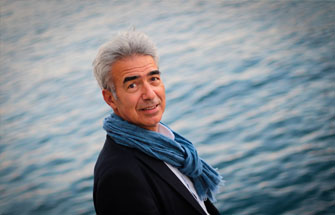Founder of Be Exclusive, a consultancy firm specializing in luxury brand strategy, Bruno LAVAGNA has embodied French-style entrepreneurial elegance for over 35 years. With a career in prestigious companies such as Lancôme, Ralph Lauren and Armani, this quadrilingual expert is now exploring the geopolitics of luxury, a concept he helped to develop. During the “Le Luxe à la française” day organized by the Monaco Foreign Trade Advisors in the presence of the Colbert Committee, he enlightened us on the unexpected bridges between luxury, customer experience, diplomacy and private banking.
Luxury, culture and influence: a geopolitics of the senses
How do you view luxury on a global scale today?
Luxury has become much more than an economic sector. It is a soft power, a tool for influence and outreach. Whether through architecture, gastronomy, elegance or know-how, each nation expresses its identity through its luxury brands. We often talk about the economy, but we must also talk about diplomacy. Luxury houses are cultural embassies. When a Ralph Lauren perfume is launched in Tel Aviv, it is at the American embassy; an Armani space in New York is in the salons of the Italian embassy. It is a subtle geopolitics, based on refinement and differentiation.
Your personal definition of luxury?
For me, luxury is time and space. Knowing how to take time, creating a place to breathe, sublimating the essential. In Monaco, for example, we don't focus on excess, but on precision, on the density of the experience. Luxury is also about the ability to listen and to adapt culturally. It is not a universal product but an emotional language, which must engage with each culture, each generation.
You often mention the role of luxury in societal transitions?
Absolutely. Luxury must assume its responsibility. It is a pioneer in sustainable development, preservation of know-how, and even humanitarian logistics—let's remember its role during the health crisis. It invests in the climate transition, supports heritage restoration, finances research. When LVMH or Chanel commit to Notre-Dame or coral reefs, it is a geopolitics of the common good.
Luxury and private banking: a natural alliance?
Do private banks fall under the luxury sector?
Unquestionably. Luxury is a way of life, a quest for the exceptional and for trust. Private banking shares this. It is a tailor-made service, based on listening, discretion and loyalty. Today, in an increasingly digitalized and standardized world, having a dedicated, human, present advisor is already a luxury. And customers know it. The private banker is a man - or woman - of trust, he touches on the intimate: wealth, life plans, family transfers.
Can we talk about luxury marketing applied to private banking?
Marketing is everywhere, but in luxury, it must remain subtle. We're not talking about cold targeting or algorithmic segmentation, but about a personalized customer experience. The big luxury houses have understood this: you have to leave room for the unexpected, for breathing space, for humanity. That's what I call the emotional intelligence of service. Private banking would benefit from taking more inspiration from this agile model, based on relationships and not on procedures.
Is the image of a private bank decisive?
It's essential. As in the luxury sector, a bank is chosen for what it embodies. A banking institution that has survived crises, wars and centuries inspires confidence. Patrimonial legitimacy is fundamental. And I deliberately use the word “house”, because that's how we talk about luxury houses. A family bank, stable and well-established, can be as reassuring as a prestigious signature.
How do you see the evolution of the client experience in private banking?
Private banks have started to borrow the codes of the luxury hotel industry: space, calm, comfort, personalized welcome. This is very positive. But we need to go further: integrate cultural experiences, exclusive events, relational added value. It is quality, not quantity, that will make the difference. And this requires training, genuine listening, an ability to understand expectations without being intrusive. That is the challenge of building loyalty in the age of hyper-personalization.
In conclusion?
If private banking wants to remain relevant, it must not only manage assets. It must manage relationships, emotions, legacies, life plans. It must think of itself as a house of trust, a house of elegance, a house of culture - like the great luxury houses.
Photo credit: Nathalie Courau






